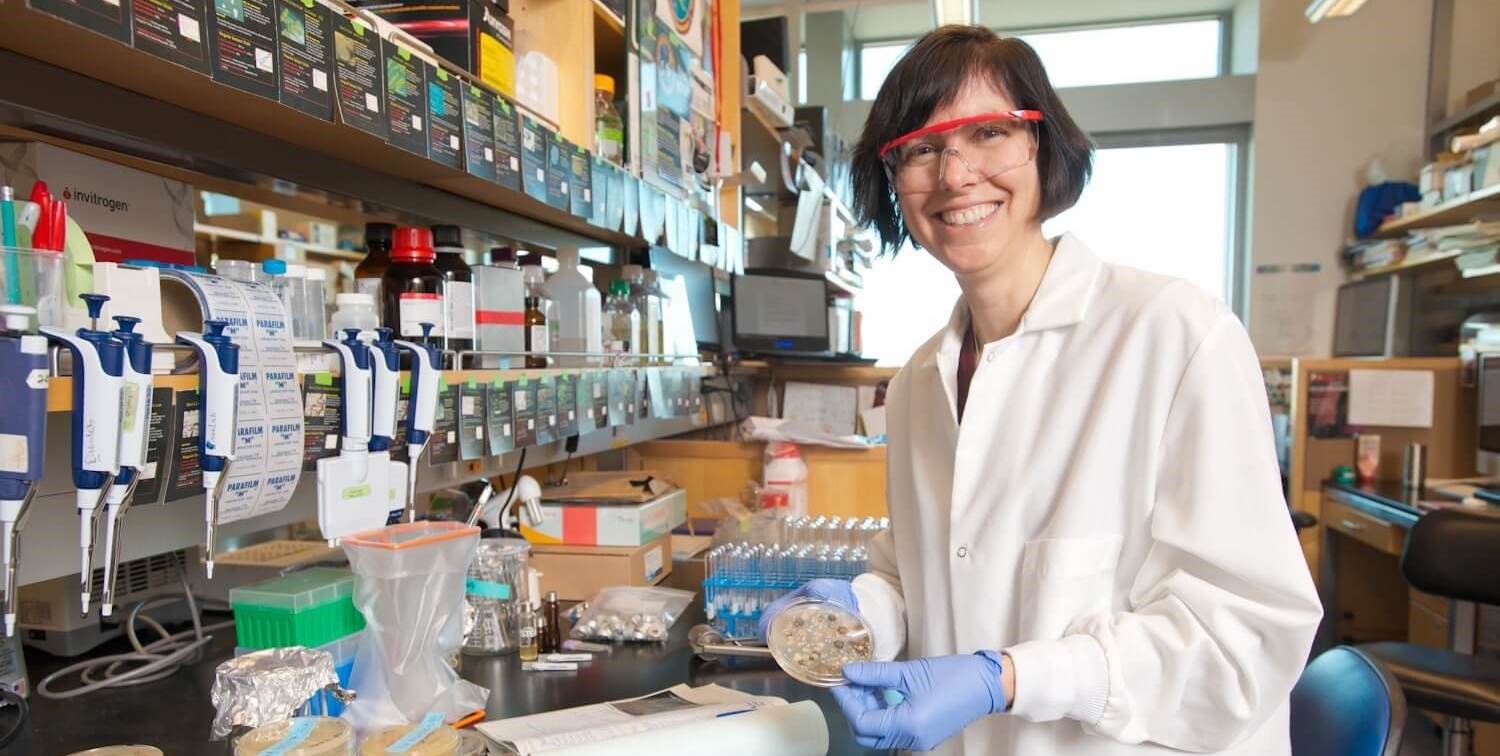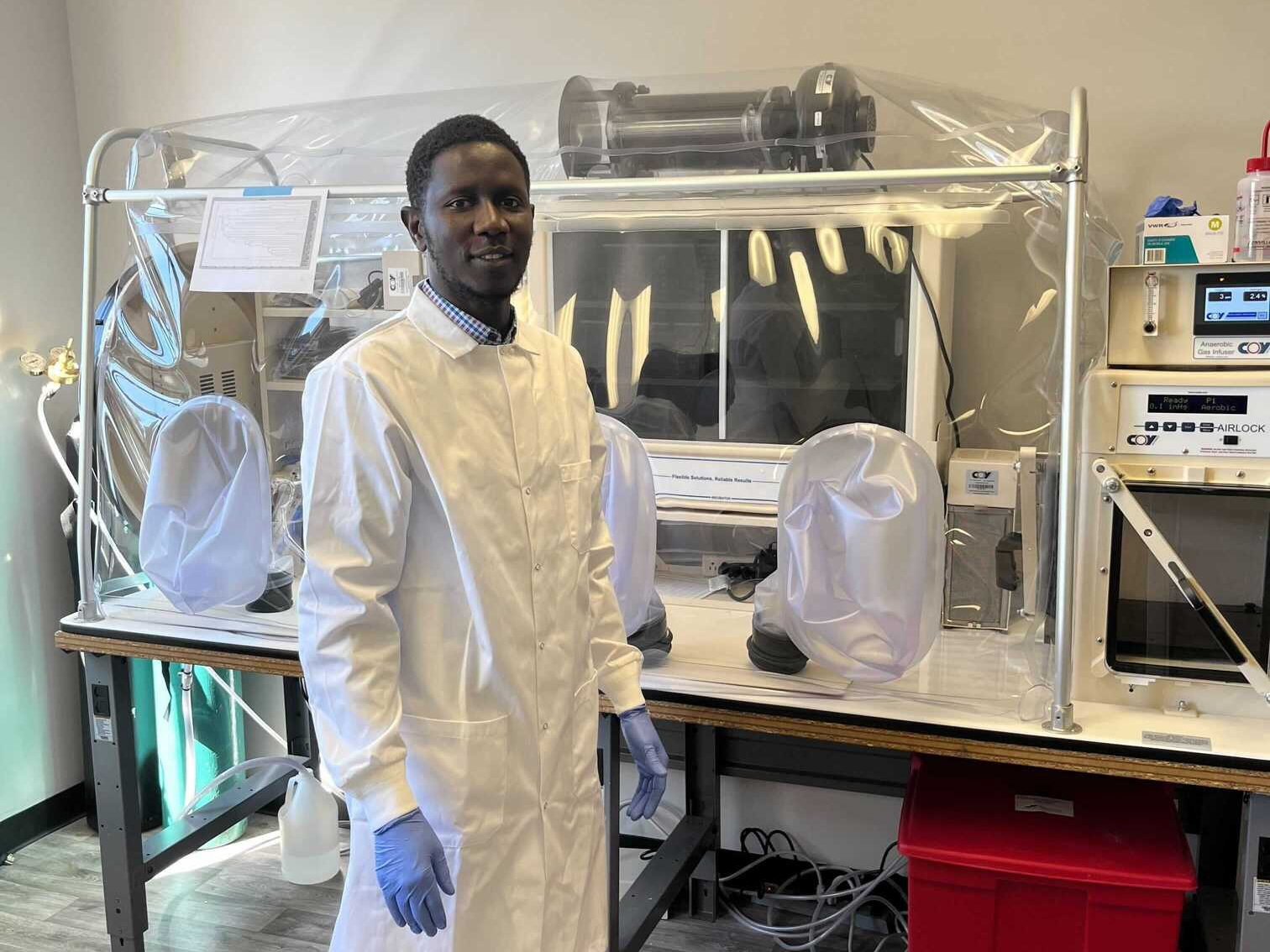Introducing Holly Ganz from AnimalBiome
Q: Can you give us a brief introduction to yourself and your startup, AnimalBiome?
A: I’m Holly Ganz, the Chief Science Officer and co-founder of Animal Biome, a company we started in 2016. Our work at AnimalBiome emerged from research I began at the UC Davis School of Veterinary Medicine and the UC Davis Genome Center, focusing on the microbiomes of cats and dogs. We specialize in providing microbiome testing and supplements aimed at improving and sustaining the gut and skin health of pets.
Q: What inspired you to start this venture?
A: The inspiration for Animal Biome is tied to several stories, but one close to my heart involves a herding dog whom I adopted during my grad studies. She was an integral part of our lives, known for her robust health and what we called a “cast iron stomach,” meaning she could eat anything without issues. However, as she aged, she developed hemorrhagic gastroenteritis (HGE), a severe condition marked by bloody diarrhea and sometimes vomiting, which can escalate to needing hospitalization due to dehydration. This condition seemed to be triggered by certain foods, and we had to be very cautious about her diet.
This personal experience coincided with the early days of starting AnimalBiome. My husband, aware of my background in microbial ecology, was unsatisfied with the vet’s explanation of her condition as an overgrowth of bad bacteria, a common narrative that often leads to antibiotic treatments. This inspired me to explore alternatives. I developed an oral capsule for fecal transplants, using freeze-dried poop, to reintroduce beneficial bacteria that antibiotics often eliminate. After treating both of my dogs with these capsules for 30 days, we saw remarkable improvement. Yuki, the dog with HGE, never suffered from it again and could eat a variety of foods. This success was a pivotal moment, confirming the potential and importance of our work at AnimalBiome.
Why Leap?
Q: What led you to choose the LEAP accelerator program? How did you connect with them?
A: My connection with LEAP grew out of my time at Davis when I was working on the dog oral microbiome, a project which Mars Corporation partly funded. Mars is affiliated with the LEAP program, and through my interactions with Mars Pet Care, I learned about LEAP. They introduced me to the program as it was starting, and AnimalBiome was part of the first cohort.
LEAP’s specific focus on pet care aligned perfectly with AnimalBiome’s mission and objectives. Their niche in pet care made them an ideal accelerator for us.
I applied to LEAP. It was an online application process followed by interviews with a shortlisted group of candidates.
How a Founder Gets In
Q: Can you share some insights about the application process? Was it competitive?
A: The application process was indeed competitive. I filled out an online form, and then there were interviews for those shortlisted. My prior relationship with Mars and experience in the field possibly gave me an edge. It’s important to note that I had also applied to other accelerators, like Y Combinator and the IndieBio Accelerator program in San Francisco, before LEAP. By 2018, when I applied, AnimalBiome was at a $300,000 annual run rate, indicating our early but significant growth. The main focus of these applications is usually on business growth, which is a key concern for investors.
A Day in the Life at the Accelerator
Q: Could you describe what a typical day was like in the LEAP program?
A: The LEAP program in 2018 was an in-person experience in Portland. We had to stay there for a few weeks, with sessions spread out at different intervals. I rented an Airbnb in Portland for the duration. Our days usually started at 9 AM, and we had various activities scheduled. The program took place in the R/GA offices in Portland, where they taught us different aspects of business development. There were also networking opportunities, like a cocktail party during the first week and some enjoyable group activities like a cooking class.
The aim was to foster a bond among participants. A significant focus of the program was on preparing for demo day, particularly building our presentations and honing our public speaking skills. However, I noticed a general challenge in these accelerator programs—they often struggle to effectively teach public speaking, especially for women. My experience with other groups like Magnetic Speaking in San Francisco was far more empowering. They could bring out incredible stories from everyone, uplifting the entire room, unlike some accelerators that tend to favor those who are already confident and articulate.
In my opinion, teaching effective public speaking is not a common strength among accelerator programs, as it’s not their primary expertise. However, the emphasis on preparing for demo days is a major component, which was also the case with IndieBio and other programs I’ve experienced.
Funding and Investment Dynamics in the Leap Program
Q: Once admitted into the LEAP program, did you receive funding?
A: Yes, as part of the LEAP program, we did receive funding. LEAP participated in an ongoing Seed Round to the tune of $120,000 through the program.
Q: Is receiving funding a standard part of being admitted into the program?
A: Indeed, funding is a component of the program. Three companies support the LEAP accelerator, and we received investment from each of them.
Q: Was this funding provided in exchange for equity in your company?
A: Yes, the funding was part of a convertible note for our seed financing, which typically involves equity. However, one unique aspect of R/GA was that instead of cash investment, they provided in-kind services. So, in all cases, equity was a part of the funding arrangement.
Reflecting on the Impact of the Leap Program
Q: Looking back, what aspects of the LEAP program do you feel were most beneficial?
A: The most valuable aspect of the LEAP program was the networking opportunities, particularly in the veterinary industry. Mars, being a significant player in this field, helped us gain a deeper understanding of the corporate veterinary market. Even though we didn’t establish any major partnerships, this insight was invaluable. We also learned a lot from Michelson and collaborated with them on some projects. Another significant benefit was the in-kind services provided by R/GA, a marketing and branding agency. They assisted us in redesigning our microbiome report for consumers, resulting in a more professional and appealing presentation of our product.
Q: Were there any challenges you faced during the program?
A: The biggest challenge was balancing the demands of running AnimalBiome while participating in the accelerator. As the CEO, dedicating time to the program while managing the business was difficult. In hindsight, I wish I could have devoted more attention to the program.
Q: How has Animal Biome progressed since completing the accelerator?
A: Post-accelerator, AnimalBiome has achieved significant growth. We closed our Series A in 2021 and are currently working towards closing our Series B. Our annual revenue is now around 6 to 7 million dollars, and we have over 60 employees.
Q: Did the program contribute to expanding your professional network?
A: Yes, the program effectively expanded our professional network.
The Next Milestones
Q: What are the next milestones for AnimalBiome, and how did the accelerator prepare you for these?
A: Our next big milestone is closing our Series B. We’ve established a microbial discovery lab and are developing microbial cocktails for cats and dogs, similar to those used in human health. The first of these products should be completed by the end of next year. The LEAP accelerator program played a crucial role in increasing our visibility, which was instrumental in securing our Series A funding and forming partnerships necessary for our R&D endeavors.
Advice for Aspiring Accelerator Participants
Q: Do you have any advice for those looking to apply to LEAP or similar accelerator programs?
A: My main piece of advice, especially for a competitive program like LEAP, is to focus on networking. Reach out to companies that have previously participated in the program and seek their advice. They might even be able to make introductions for you. Networking is crucial, much like in job hunting. With potentially hundreds of applicants, having a network can make a significant difference in standing out and getting noticed.


